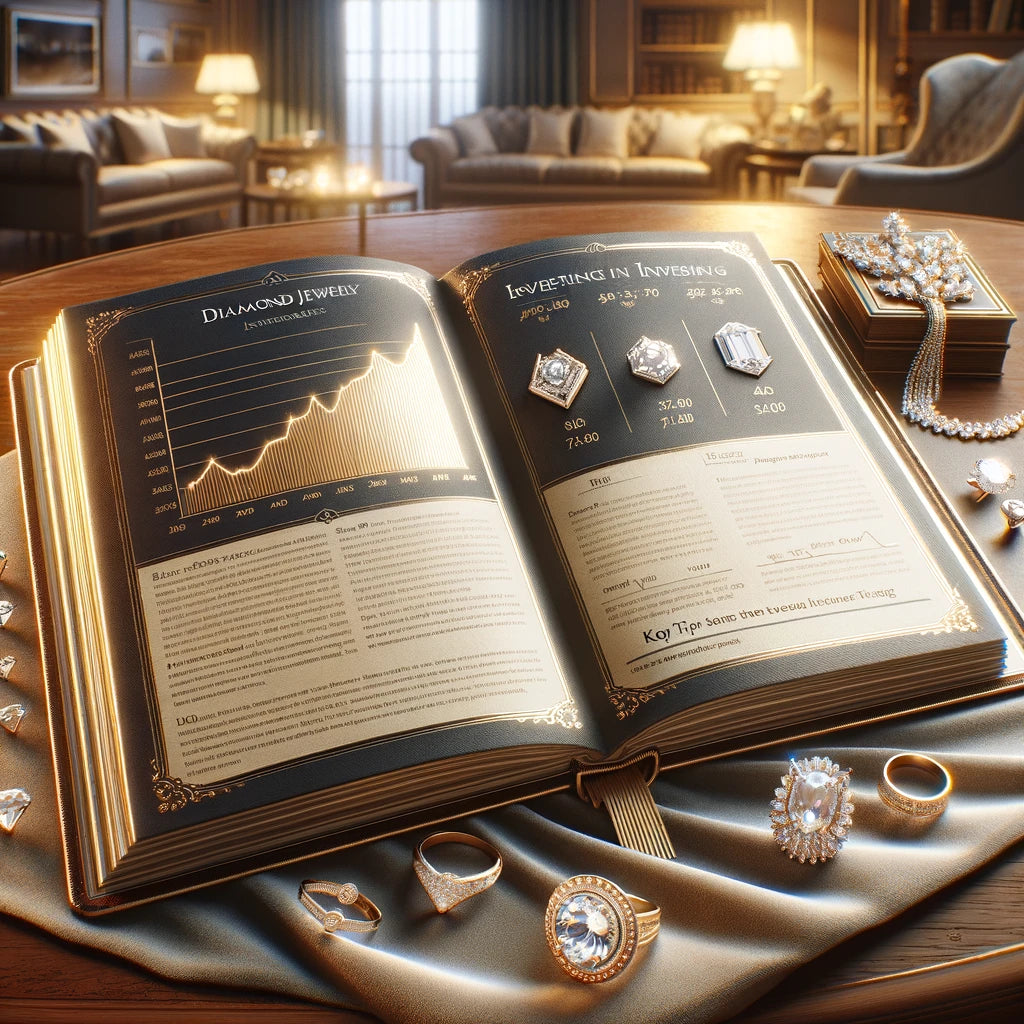
Introduction
Investing in diamond jewelry can be both a symbol of personal luxury and a strategic financial decision. Understanding the nuances of the diamond market and how to select investment-grade diamonds is crucial for anyone considering this path. This guide provides comprehensive insights into the world of diamond investment, tailored for Revival Diamond.
Understanding the Diamond Market
The Value of Diamonds
Why Diamonds Are Valuable
Diamonds have been valued for centuries for their rarity, beauty, and durability. These factors contribute to their longstanding status as a symbol of wealth and luxury. In the investment world, high-quality diamonds are sought after for their ability to retain value and sometimes appreciate over time.
Factors Influencing Diamond Value
The 4 Cs
- Cut: The quality of a diamond's cut affects its brilliance and beauty. Well-cut diamonds are more desirable and valuable.
- Color: Diamonds are graded for color, with colorless diamonds being the most valuable.
- Clarity: This refers to the absence of inclusions or blemishes. Higher clarity grades increase a diamond's value.
- Carat Weight: Larger diamonds are rarer and, therefore, more valuable, though this must be balanced with the other Cs.
Market Trends
Understanding the current trends in the diamond market, such as the rise in demand for ethically sourced diamonds or the growing popularity of colored diamonds, is essential for making informed investment decisions.
Choosing the Right Investment Diamonds
Investment-Grade Diamonds
Not all diamonds are created equal in the investment world. Investment-grade diamonds typically are high in quality, with excellent grades in the 4 Cs, and often come with certification from reputable laboratories.
Ethical Sourcing
Modern investors are increasingly concerned about the ethical implications of their investments. Choosing diamonds that are responsibly mined and traded is not only ethically sound but can also add to the investment's value.
Care and Maintenance
Protecting Your Investment
Proper care and maintenance are crucial to preserving the beauty and value of diamond jewelry. This includes regular cleaning, proper storage, and insurance coverage.
Selling Your Diamonds
Knowing When to Sell
The decision to sell should be based on market analysis, personal financial goals, and an understanding of the diamond's value over time. Consulting with experts can provide valuable insights.
FAQs
What Makes a Diamond an "Investment-Grade" Diamond?
Investment-grade diamonds are those that excel in the 4 Cs, are rare, and often have a proven track record of value appreciation.
How Do I Ensure the Diamond I Purchase is Ethically Sourced?
Look for diamonds with certification that includes information about their origin and confirms they are conflict-free.
Can Diamond Jewelry Be a Short-Term Investment?
Diamond jewelry is typically considered a long-term investment due to market fluctuations and the time needed for appreciation.
Is Certification Important for Investment Diamonds?
Yes, certification from reputable labs like the GIA provides an authoritative assessment of the diamond's qualities and is essential for investment-grade diamonds.
This guide is a starting point for anyone interested in investing in diamond jewelry. For further information and personalized advice, visit Revival Diamond.

